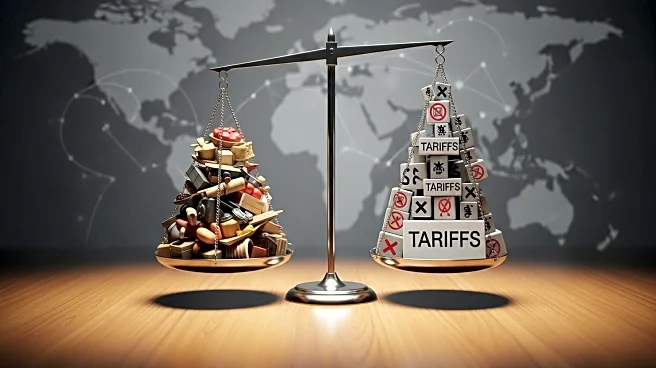What is the story about?
What's Happening?
President Trump has imposed fresh tariffs on Nigerian goods, impacting bilateral trade between the United States and Nigeria. According to the US Census Bureau and the Bureau of Economic Analysis, Nigerian exports to the U.S. dropped by 41% from June to July 2025, decreasing from $639 million to $379 million. Despite this decline, the U.S. maintained a trade surplus of $206 million in July. The tariffs, ranging from 10% to 41%, were part of Trump's broader strategy to address America's trade imbalance. These measures have affected Nigeria's trade dynamics, with the U.S. being one of Nigeria's top import markets.
Why It's Important?
The imposition of tariffs by President Trump is significant as it alters the trade relationship between the U.S. and Nigeria, potentially affecting economic growth and trade dynamics in both countries. For Nigeria, the increased tariffs could lead to reduced export revenues and impact its economic stability. For the U.S., maintaining a trade surplus despite reduced imports highlights the complexity of international trade policies. The tariffs may also prompt Nigeria to seek alternative trade partners, affecting U.S. influence in the region.
What's Next?
Nigeria may need to adapt to the new trade environment by exploring other international markets to mitigate the impact of U.S. tariffs. Additionally, ongoing negotiations and adjustments in trade policies could occur as both countries navigate the economic implications. The broader impact on U.S.-Africa trade relations may also be observed, with potential shifts in alliances and trade strategies.
















